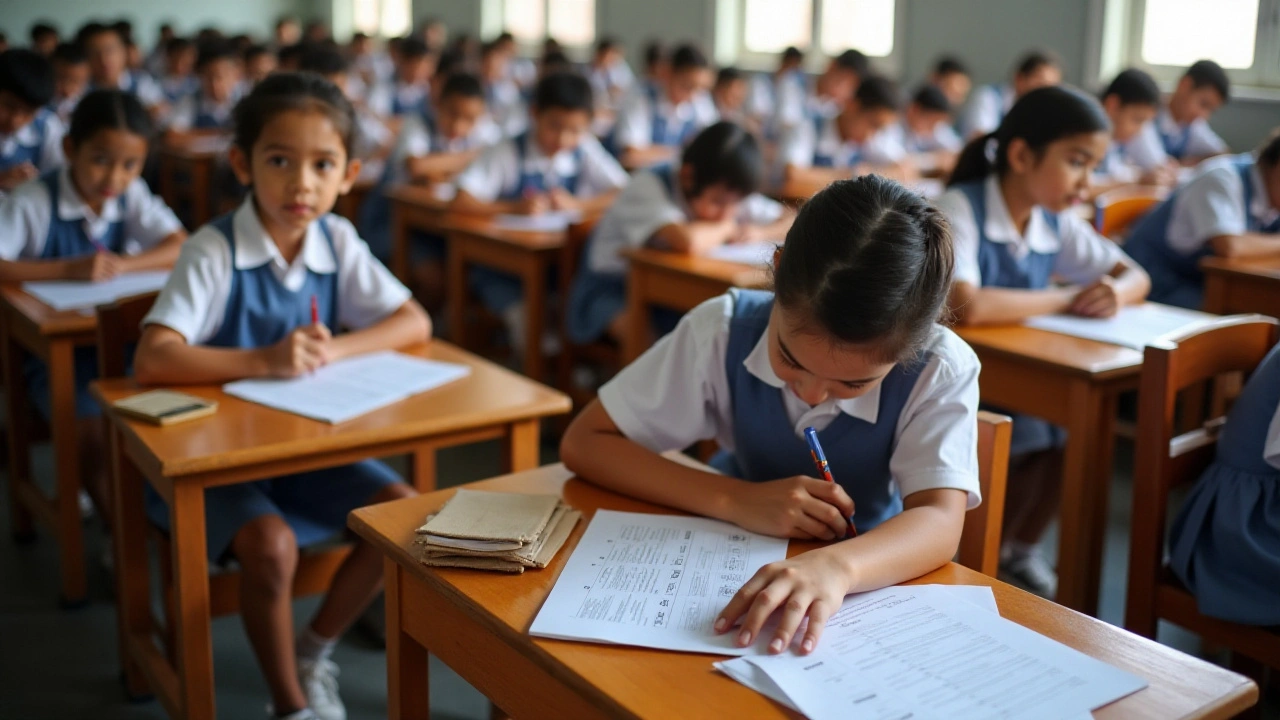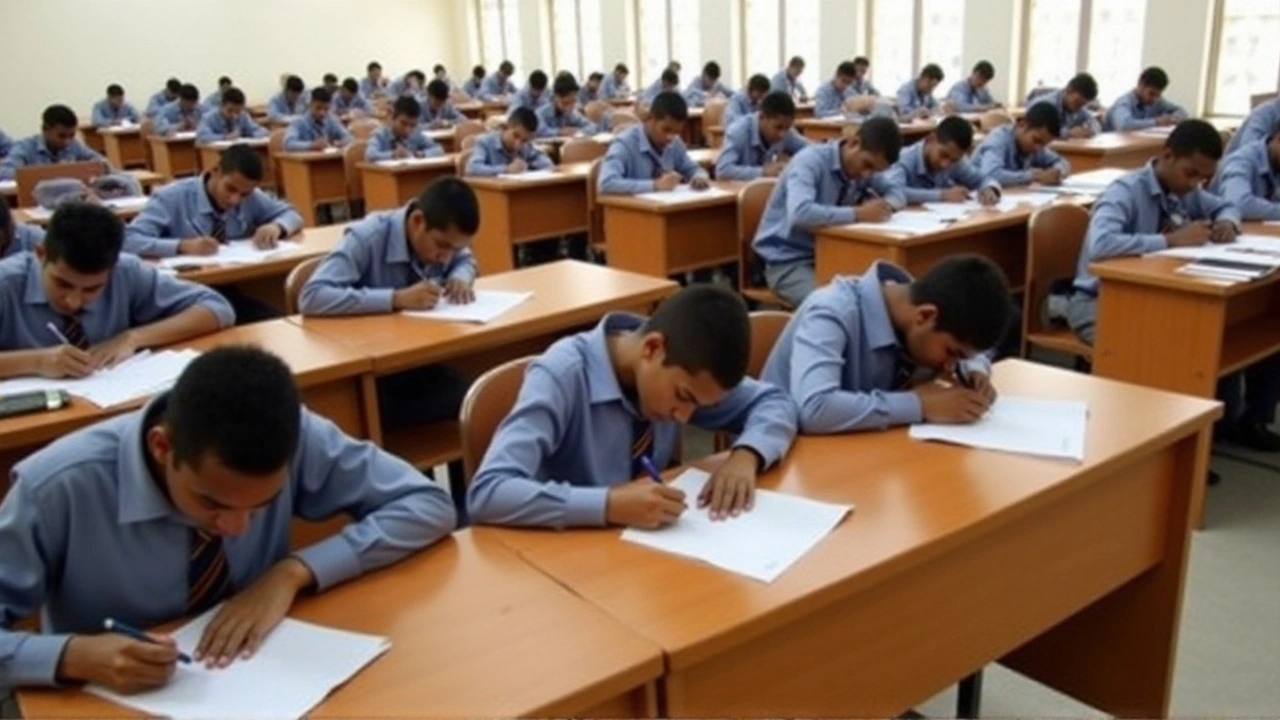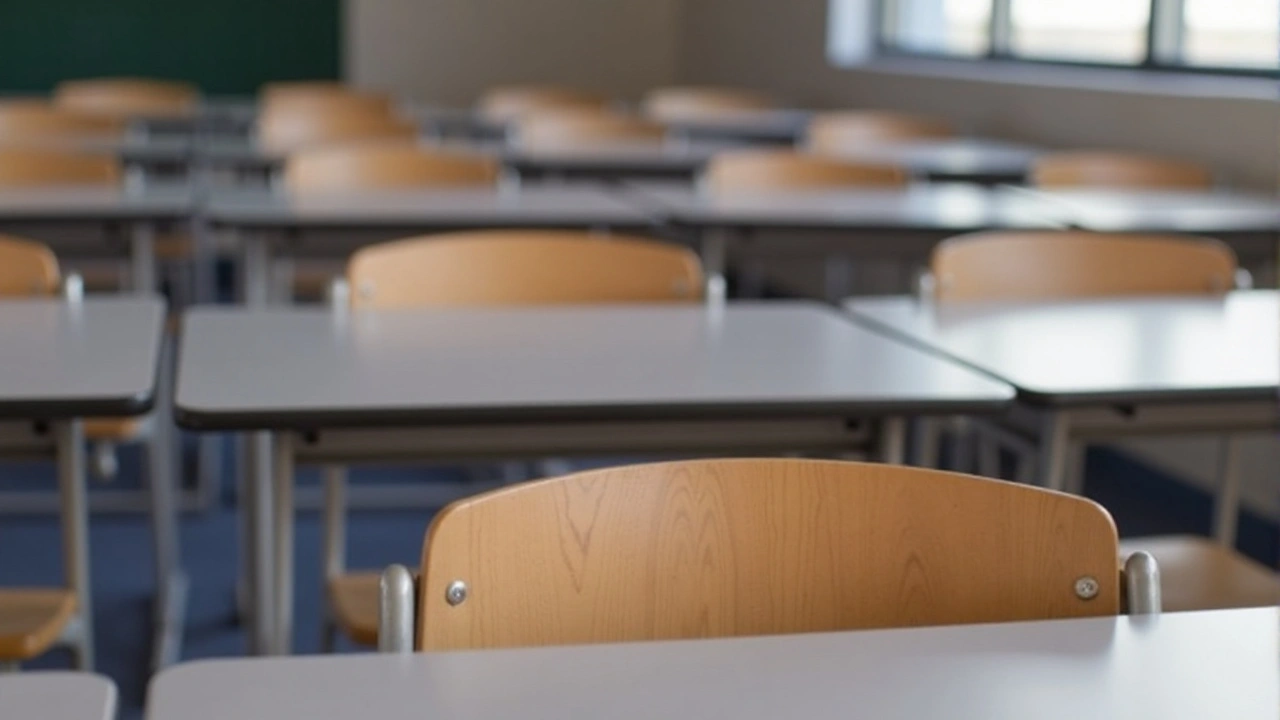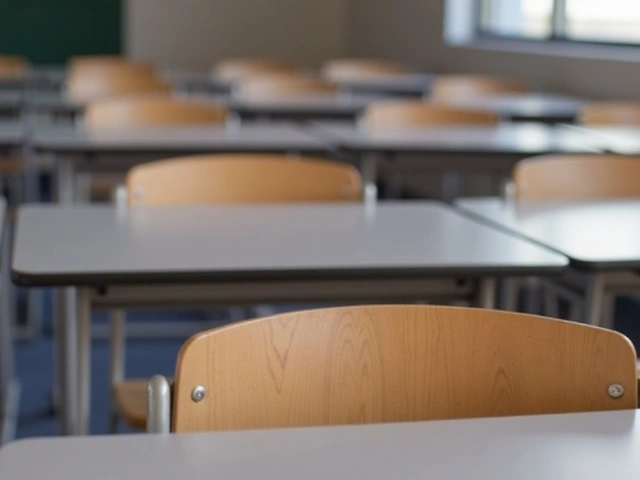Introduction
The Eastern Cape, a province often highlighted for its struggles in South Africa, is demonstrating a commendable initiative aimed at bridging the educational gaps for vulnerable matric students. With the matriculation exams being one of the most critical junctures in a South African student's life, teachers from Ekuphumleni Senior Secondary School are implementing strategies to ensure that their students can face this challenge with confidence and ease. This move is particularly significant for students who are grappling with socio-economic hardships and the psychological burden of residing in communities marked by violent incidents. The resolve of the teachers is not only to prepare the students academically but also to offer them a safe space, thereby cementing the critical role of education in their futures. This effort has found support from the Eastern Cape Department of Education, which is wholeheartedly endorsing the drive to provide every learner with an equal shot at success.
The Educational Landscape of Eastern Cape
The Eastern Cape is home to rich cultural heritages and breathtaking landscapes, yet it remains one of the most under-resourced regions in South Africa's education sector. Schools often operate in challenging conditions, with scarce resources, and educators without the tools they need to elevate the learning process. Economic disparity has further widened the gap in educational attainment, affecting the prospects of many students, particularly those from impoverished backgrounds. Given these conditions, the annual matric exams, which mark the culmination of twelve years of schooling, can pose an almost insurmountable challenge for some, with risks of students falling through the educational cracks.

Socio-Economic Challenges and Their Impact
Numerous socio-economic difficulties weigh heavily on the shoulders of students in Eastern Cape. High poverty rates, coupled with a lack of access to quality resources, have led to high absenteeism and dropout rates. Likewise, external factors such as community violence further exacerbate these issues, creating a disruptive environment not only for learning but for mental well-being. It's in this context that the educators at Ekuphumleni Senior Secondary School have stepped in, determined to overturn the adversities with sheer willpower and dedication.
The Initiative at Ekuphumleni Senior Secondary School
The teachers at Ekuphumleni Senior Secondary School, amidst these obstacles, have taken a proactive approach to cater to the diverse needs of their learners. This initiative is characterized by one-on-one tutoring sessions designed to address individual learning gaps and provide emotional support, fostering both academic improvement and personal growth. Teachers are creating specialized programs tailored to different subjects, ensuring that students do not just pass but excel.
Similarly, mentorship is playing a crucial role in this initiative. Teachers are offering guidance beyond the textbooks, helping students navigate their emotional challenges, fostering resilience, and reinforcing the importance of education as a tool for breaking the cycle of poverty.
Role of the Eastern Cape Department of Education
The additional support from the Eastern Cape Department of Education highlights a critical acknowledgment of the impact of these initiatives. By endorsing the initiative at Ekuphumleni, the Department underscores the necessity to bolster efforts that are directed at the landscape of education in the region. This support extends to providing additional resources and training to ensure that teachers are not alone in their efforts.
Such a supportive stance is essential in aligning the educational system with the specific and nuanced needs of the province, reinforcing a commitment to equality in education. The Department's involvement sets a precedent for similar initiatives across other schools, signifying a systemic shift towards empathy-driven education policies.
The Broader Impact on Educators and Students
The success of this initiative doesn't solely rest upon individual teacher efforts but fosters a community spirit of resilience and determination. It encourages educators in other regions to emulate similar practices, creating an ecosystem where every student, irrespective of their background, can thrive. For the students, it instills a sense of hope and motivation, driving home the message that their environment does not determine their destiny.
Furthermore, it challenges the broader educational structures to rethink traditional methodologies, adapting to more compassionate and student-centered approaches. These shifts can redefine how education is perceived and administered in the Eastern Cape, setting the trajectory for future educational reforms.

Conclusion
The initiative by Eastern Cape teachers, and particularly those at Ekuphumleni Senior Secondary School, is a story of inspiration and transformation. It's a testament to the power of dedicated educators to affect change amidst adversity. In the face of socio-economic challenges and community adversities, these teachers are pioneering a model of education that seeks to uplift and empower, embodying the true spirit of what education should strive towards. As we look forward to the 2024 matric exams, it's these unsung heroes who illuminate the potential of each learner, courageously bridging the gap towards a brighter future.



Comments
Seeing teachers step up like this is incredibly moving :) It shows that compassion can thrive even in the toughest places.
The dedication of those educators reminds us that education is not just about textbooks it is about hope it is about breaking cycles it is about giving a voice to those who have been silenced it is about community strength it is about resilience it is about the belief that every learner can rise it is about the power of one teacher who says I am here for you it is about the ripple effect that spreads beyond the classroom it is about the future of a province that has long been overlooked it is about the courage to confront violence with knowledge it is about love in action it is about building safe spaces where minds can flourish it is about hope that outlasts hardship it is about transformation that starts with a single lesson.
What a wonderful initiative, and I love how they combine tutoring with mentorship, because students need both academic support, and emotional guidance, especially in environments where community violence is a daily reality, the one‑on‑one sessions are priceless, and the tailored programs show real commitment, kudos to the staff for leading by example, and to the department for backing this effort, it's a model that could inspire other schools, too.
This effort is a beacon of hope.
We need more of this strategic, high‑impact educational overhaul-no nonsense, just results.
Totally agree! These teachers are doing an amazing job, and the extra help will boost the kids' confidence big time.
It's inspiring how a simple act of mentorship can reshape a whole community's outlook-education truly is the most powerful tool we have.
Nice to see something positive coming out of a place that's often in the news for the wrong reasons.
Yo, this is legit epic! Like, imagine being a kid and getting that kind of support-total game changer, no cap!
Interesting read, though I wonder how sustainable this program is in the long term.
Honestly, if the government truly cared they'd fund every school like this. This isolated effort is just a token gesture.
Well, that's one perspective, but perhaps the real issue lies in systemic neglect-have we even considered why these schools are under-resourced in the first place???
Ah, the bittersweet drama of hope emerging from hardship-students, teachers, and even the surrounding community become actors on a stage where resilience is the script, and perseverance is the encore. The ripple effect of a single mentor's advice can echo through generations, shaping futures that once seemed impossible. It's a narrative we all need to cherish and amplify.
Curious about the specific tutoring methods they use-are they incorporating technology or relying on traditional techniques?